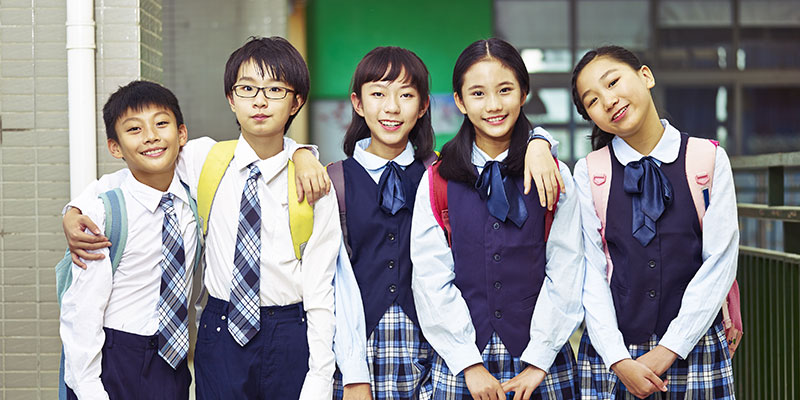PSLE Science: Under the Spotlight
Singapore's Ministry of Education leaves no stone unturned regarding students' academic future. The Science syllabus for Primary Schools in Singapore is a classic example of the MOE's effort to instil a fine balance between scientific concepts, the acquisition of knowledge, and their application.
Drafted by the MOE, the PSLE Science syllabus is largely designed to help students:
- Develop, analyse and reason the scientific concepts.
- Develop problem-solving skills.
- Perceive concepts with open curiosity.
- Explore new territories.
- Learn and discover new things.
Primary Science starts at a measured pace in the early years and speeds up as students approach P5 and P6. At the end of P6, students face the PSLE Science exam- the real deal that tests their skills in understanding the subject's theoretical and practical perspectives. All this depends on your child's awareness of the PSLE Science topics and sub-chapters.
This article gives you a detailed insight into what the PSLE Science syllabus for Primary 5 and 6 entails. Read on!
PSLE Science Syllabus for P5 & P6
PSLE Science for P5 and P6 covers four main topics:
- Systems
- Interactions
- Cycles
- Energy
The following table explains each topic, the syllabus and skill requirement in detail:
| Theme | Syllabus requirement | Skills required |
|---|---|---|
| P5 Cycles | Reproduction in Plants Reproduction in Animals Water and Changes in States Water Cycle |
|
| P5 Systems | Plant Transport System Human Respiratory and Circulatory Systems Cell System Electrical System |
|
| P5 and P6 Energy | Photosynthesis Energy Forms and Uses Energy Conversion |
|
| P6 Interactions | Interaction of frictional, gravitational, and spring forces. Environmental Interaction. |
Students taking Foundation Science are exempted from topics such as Cell System, Energy Conversion, and Forces in Springs.
Also Read : Everything You Need to Know About PSLE Science
Given below is a compilation of topics covered under each theme.
1. Systems
Primary 5 and 6 science syllabus entails three types of systems:
- Human
- Plants
- Electrical circuits
The Human System
Under this topic, students will learn about the various systems in the human body, such as:
- Circulatory system: Blood circulation, oxygen distribution, and nutrient delivery to various organs and parts of the body.
- Digestive system: Food digestion, absorption, assimilation, and waste removal.
- Respiratory system: Intake of oxygen and expulsion of carbon dioxide.
- Endocrine, exocrine, neuro, muscular, immune, renal, reproductive, and skeletal systems may also be mentioned but are not covered.
The Plant System
This topic covers aspects like:
- Water absorption: Absorption of water from the roots, stems, and leaves.
- Respiration: How plants need to respire to get energy even without sunlight.
- Photosynthesis: The process of converting water, sunlight, and carbon dioxide into oxygen and energy.
The syllabus also teaches students to compare the human and plant systems and enlightens them about human dependence on plants for food and oxygen.
The Electrical System
This topic teaches students about:
- Recognising good conductors of electricity as opposed to insulators.
- Effects of having additional batteries in a circuit.
- Not having a closed circuit or flipping a switch off.
- Arranging appliances in series as opposed to being parallel.
2. Cycles
The following sub-topics are covered under "Cycles":
Reproduction in Plants and Animals
Here, the curriculum introduces children to scientific terms denoting the sexual reproduction of flowering plants, like:
- Pollination
- Seed dispersal
- Germination
- Fertilisation or seed production
The objective is to make them understand that all living things procreate to ensure the continuity of their species and to pass on their genetic traits from parents to offspring.
Please note that using specific terms like self-pollination and cross-pollination is not required. So are vegetative propagation methods like marcotting, grafting, and stem-cutting.
Students are trained to recognise the use of similar terms in the reproduction of humans and flowering plants. They are taught that testes produce sperm and ovaries produce eggs. They also learn that fertilisation occurs when sperm and egg fuse to develop in the womb.
Water
The main aspects covered under this topic are:
- Water and its three states, namely, solid, liquid, and gas.
- Terms of each state, such as ice, water, and water vapour.
- The existence of water in various states depends on the temperature.
The prime objective of this topic is to help students understand:
- The various properties of water.
- The effect of temperature on the matter.
- The water cycle, evaporation and condensation of water, rain and its importance.
3. Energy
This topic introduces students to force and energy, their impact on our daily lives, different types of energy, and how to convert them. They learn how force is used to:
- Change the speed and direction of a moving object.
- Stop a moving object.
- Change the shape of an object.
The other sub-topics covered include:
- Chemical PE
- Elastic PE
- Sound
- Heat
- Light
- Electricity
- KE
- GPE
- Energy conversion
4. Interactions
This final topic for Primary school Science is all about interactions, specifically those that exist in a general environment. The objective is to allow children to understand:
- Factors that determine the survivability of organisms in an environment.
- Organisms' roles in maintaining an eco-system.
- Organisms' adaptability.
The main themes covered are:
- Food chains; prey and predators in a food chain.
- Sun is a primary source of life.
- Difference between habitats.
- Human impact on environments.
- Living together.
- Structural and behavioural adaptation.
Primary Science: The Foundation for Higher Studies
The MOE's take on the Primary Science syllabus is crystal clear. The syllabus is designed to lay a super-strong foundation to pursue the subject at higher educational levels. It also emphasises the desired educational outcome for the students in Singapore and the national education.
With this strong foundation, students can explore more scientific concepts at their own pace and discover innovative ways to apply them.
StudySmart, Singapore is the smartest way to help your child understand and learn PSLE Science questions. Our app has immense benefits for both you and your child! Want to know more? Call us today!

